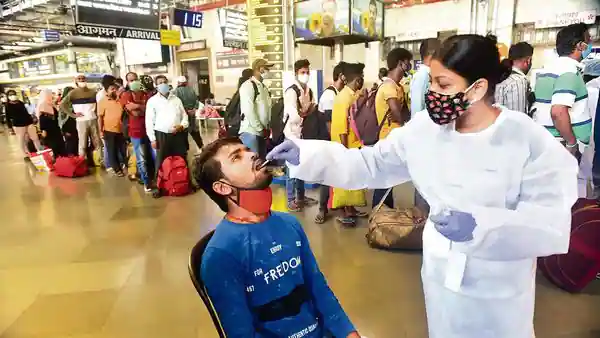
[ad_1]
UK scientists have identified a gene in the human body that doubles the risk of dying due to Covid-19, providing new insight into how the illness affects patients and possibly help in developing specific treatments.
Around 60% of people with South Asian ancestry carry the high-risk genetic signal, researchers at Oxford University said, adding the discovery partly explains the high number of deaths seen in some British communities, and the affect of Covid-19 in the Indian subcontinent.
The researchers found that the higher risk version of the gene probably prevents the cells lining airways and the lungs from responding to the virus properly. But importantly it doesn’t affect the immune system, so the researchers expect people carrying this version of the gene to respond normally to vaccines.
The authors cautioned that the gene cannot be used as a sole explanation as many other factors, such as socioeconomic conditions, play a role. Despite a significant impact from the virus to people with Afro-Caribbean ancestry, only 2% carry the higher-risk genotype.
People with the gene, known as LZTFL1, would particularly benefit from vaccination, which remains the best method of protection, the authors said. The findings raise the possibility of research into treatments specific to patients with this gene, though no tailored drugs are currently available.
This “shows that the way in which the lung responds to the infection is critical,” said James Davies, co-lead author and associate professor of genomics at Oxford, who worked in intensive care during the pandemic. “This is important because most treatments have focused on changing the way in which the immune system reacts to the virus.”
Davies and his colleagues found the gene using artificial intelligence and cutting-edge molecular technology. The team trained an algorithm to analyze large quantities of genetic data from hundreds of types of cells all over the body, and then used a new technique that allowed them to hone in on the DNA behind this specific genetic signal.
All other things being equal, “if you have the higher-risk genotype and you get very unwell with Covid, there’s a 50% chance that that wouldn’t have happened to you had you had the lower-risk genotype,” Davies said.
Never miss a story! Stay connected and informed with Mint.
Download
our App Now!!
[ad_2]